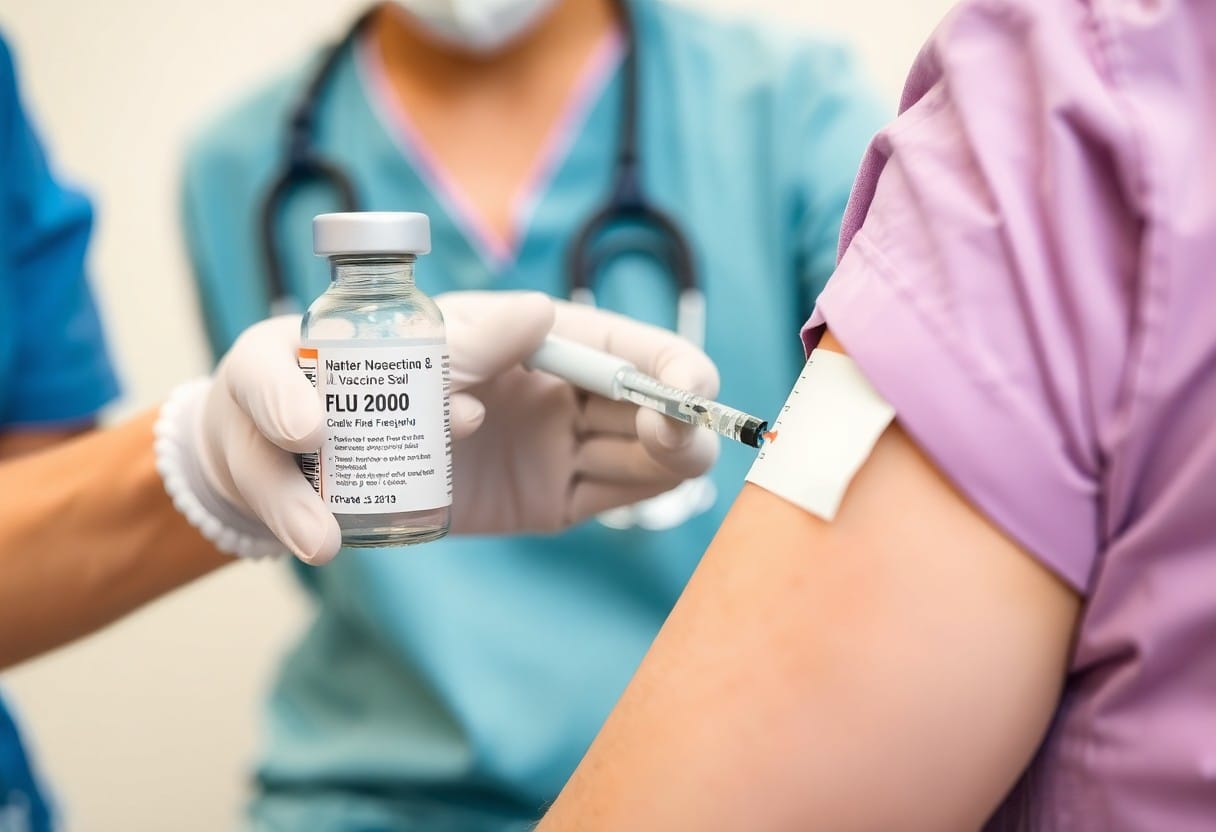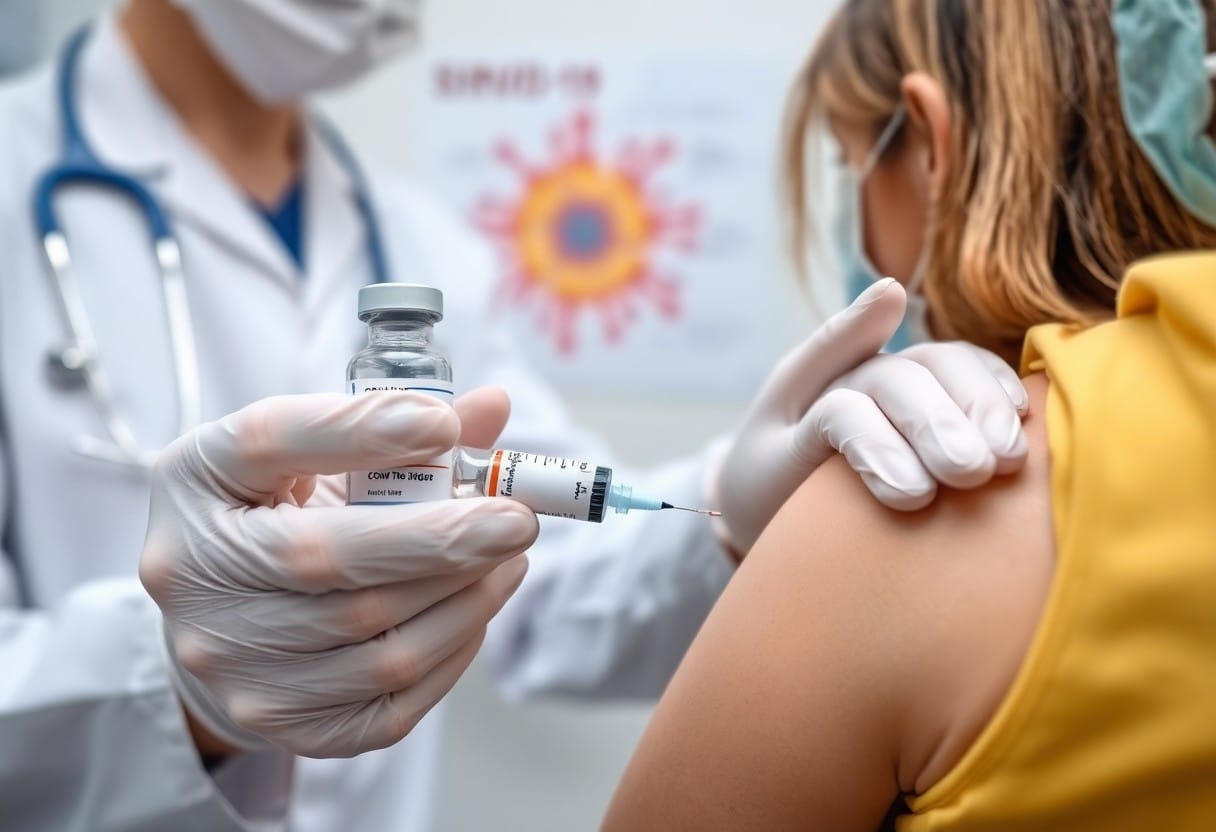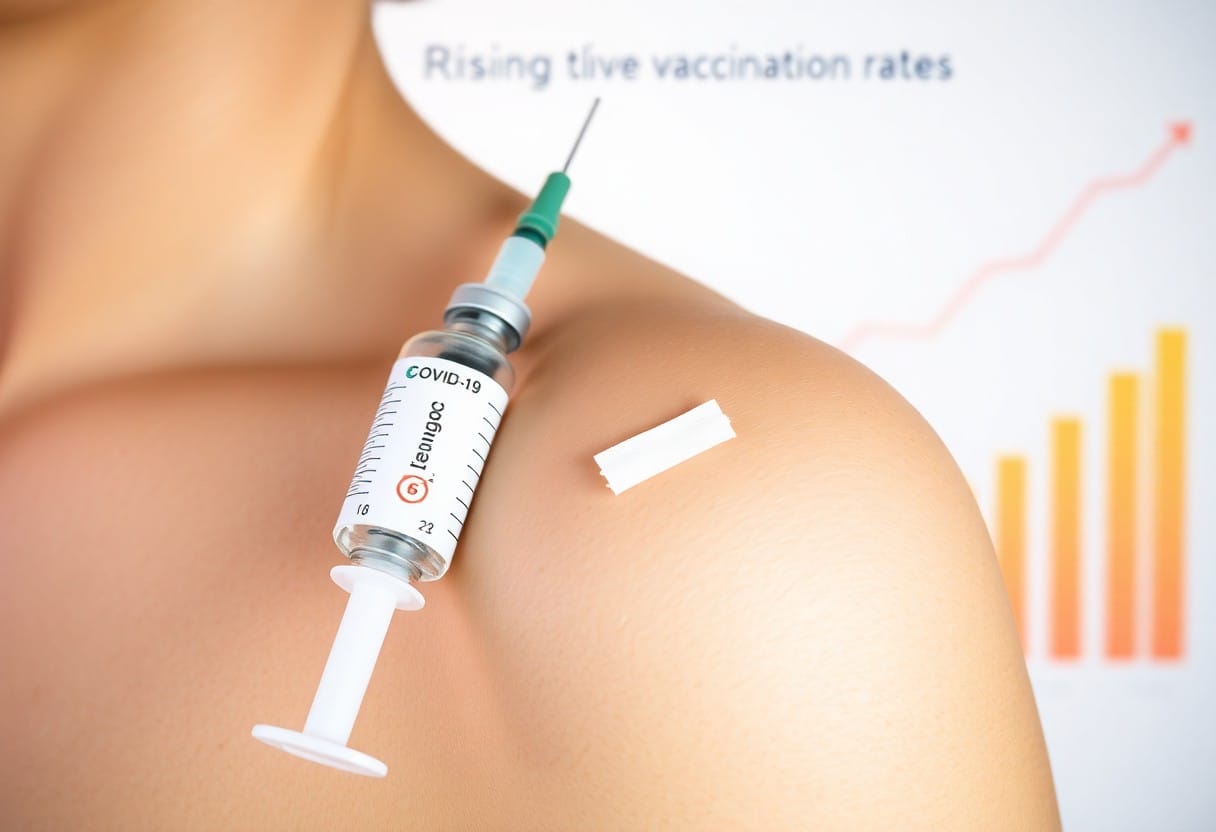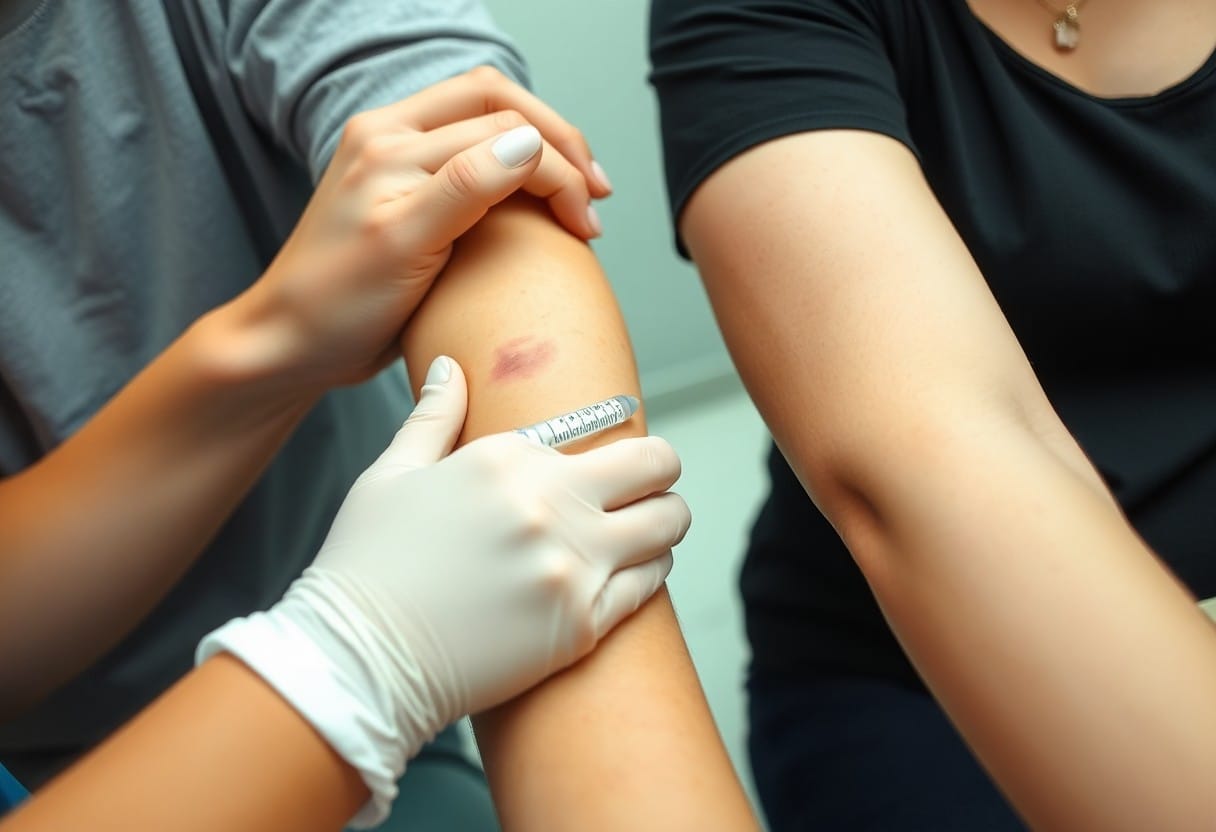Vaccine administration, while beneficial for public health, can sometimes lead to rare complications, including Shoulder Injury Related to Vaccine Administration (SIRVA). If you are experiencing persistent shoulder pain or limited range of motion after receiving a vaccine, it’s important to recognize the associated symptoms. In this post, you will learn how to identify these symptoms and gain a deeper understanding of when to seek medical advice. Your awareness can help ensure that you receive appropriate care if you suspect a vaccine-related injury.
Understanding SIRVA
As a condition linked to improper injection techniques, SIRVA stands for Shoulder Injury Related to Vaccine Administration. This injury typically results from a vaccine being administered too high on the shoulder or inappropriately, leading to inflammation and pain in the shoulder region. Understanding SIRVA can empower you to seek the right treatment if you experience related symptoms after receiving a vaccine.
What is SIRVA?
Any individual who experiences shoulder pain following a vaccination may be facing SIRVA. This condition arises when the vaccination incorrectly impacts the shoulder joint or surrounding tissues. It can lead to acute pain and stiffness, making simple movements challenging.
Common Symptoms of SIRVA
With SIRVA, the most prevalent symptoms include persistent shoulder pain, limited range of motion, and swelling around the injection site. You may also notice difficulty when lifting your arm, particularly overhead, and tenderness in the area.
To help you identify SIRVA more clearly, it’s important to look for signs of intense pain that starts within a few days after vaccination. You might feel a constant ache that affects your daily activities, as well as decreased mobility that hinders your ability to perform everyday tasks. If any swelling or warmth develops around your shoulder, you should consider consulting a healthcare professional for further assessment and possible treatment options.
How to Identify Vaccine-Related Injury
One way to identify a vaccine-related injury is by closely monitoring your symptoms following vaccination. Common indicators include persistent pain or reduced range of motion in the shoulder where the vaccine was administered. If these symptoms appear within a short time frame after vaccination and do not improve, it may suggest a link to the vaccine rather than other causes.
Recognizing SIRVA Symptoms
You should look out for specific symptoms that may indicate SIRVA, such as severe shoulder pain, weakness, or swelling that develops within a few days following your vaccination. If the pain restricts your daily activities or does not subside, it’s vital to seek medical attention to discuss your symptoms further.
Differentiating SIRVA from Other Conditions
On the other hand, distinguishing SIRVA from other shoulder-related conditions can be challenging. Various injuries, such as rotator cuff tears or adhesive capsulitis, may display similar symptoms like pain or limited mobility. Consulting with a healthcare professional can assist in identifying whether your symptoms are indeed SIRVA.
Another factor to consider is that SIRVA symptoms often manifest shortly after vaccination, usually within a few days, while other shoulder conditions may develop gradually or due to specific physical activities. Additionally, SIRVA typically responds to treatments that address inflammation, unlike some other injuries that may require different interventions. Being aware of these differences can help you take appropriate steps towards effective treatment.
Tips for Seeking Medical Advice
Even if you suspect you may have a vaccine-related injury, it’s imperative to seek professional medical advice. Here are some tips to guide you:
- Document your symptoms and their duration
- Keep a record of your vaccination history
- Be honest about your health history
- Ask for referrals to specialists if necessary
Knowing how to approach your healthcare provider can help ensure you receive the appropriate care and guidance.
When to Consult a Healthcare Provider
Some signs indicate that it’s time to seek help from a healthcare provider, especially if you experience persistent symptoms or new health issues following your vaccination. Pay attention to any changes in your health, have open communication with your provider, and do not hesitate to seek their advice if you experience concerning symptoms.
Questions to Ask Your Doctor
Provider consultations are an imperative step in addressing your health concerns. Be prepared to ask questions that can provide clarity on your condition and treatment options. Some important questions may include:
Doctor visits can feel overwhelming, but asking the right questions is vital for your understanding and peace of mind. Inquire about possible vaccine-related injuries, treatment options available, and whether any additional tests are necessary. It’s also beneficial to ask about symptom management strategies and the potential for long-term effects. Your health and safety should always come first, so don’t hesitate to seek clarification on any point that concerns you.
Factors Contributing to SIRVA
Once again, understanding the factors contributing to SIRVA can help you identify potential risks and symptoms. Key factors include:
- Improper injection site
- Injection technique
- Underlying anatomical variations
- Previous shoulder injuries
The more aware you are of these factors, the better prepared you will be to address any concerns about your health.
Vaccine Administration Techniques
SIRVA often occurs due to improper vaccination techniques. If the vaccine is administered too high on the shoulder, it can lead to inflammation and pain. Ensuring proper placement and technique is important for minimizing the risk of SIRVA.
Individual Risk Factors
Now, you should be aware of individual risk factors that can increase your chances of experiencing SIRVA. These may include:
- Pre-existing shoulder conditions
- Inadequate muscle tone
- Age factors
- Prior shoulder injuries
Any risk factors you possess may heighten the likelihood of developing complications following vaccination.
Administration of vaccines plays a significant role in mitigating SIRVA risks. If you have a history of shoulder injuries or reduced muscle tone, be proactive and communicate this information to your healthcare provider before receiving a vaccine. Proper injection techniques and awareness of your individual risks will help safeguard against issues that could detrimentally affect your health. Any oversight in vaccination administration can lead to serious complications.
Management and Treatment Options
Many individuals experiencing SIRVA symptoms may seek various management and treatment options to alleviate their discomfort and restore function. These options can range from self-care strategies to professional interventions, tailored to your specific needs and the severity of your symptoms. It’s vital to explore these approaches to find what works best for your unique situation.
Self-Care Strategies
Management of SIRVA can begin at home with effective self-care strategies. You might consider applying ice or heat to the affected area to reduce inflammation and pain. Gentle stretching and specific exercises may help maintain mobility, while over-the-counter pain relievers can provide symptom relief. Ensuring adequate rest and hydration also supports your recovery process.
Professional Treatment Approaches
There’s a range of professional treatment options available for individuals experiencing SIRVA symptoms. These can include physical therapy, corticosteroid injections, or even acupuncture, depending on your specific needs and responses to previous treatments. It is important to consult a healthcare professional for a tailored approach.
For instance, physical therapy can be highly beneficial for restoring movement and strength in the affected area, while corticosteroid injections may help reduce inflammation and provide direct pain relief. If conservative measures are unsuccessful, discussing other options such as surgery with your healthcare provider could be necessary. Your healthcare professional will provide a tailored treatment plan that aligns with your specific symptoms and health goals.

Reporting and Documenting Your Symptoms
After recognizing your SIRVA symptoms, it’s vital to report and document them effectively. Keeping a detailed account of your symptoms, their onset, and any related incidents will support your case if you seek medical assistance or file a claim. Make note of when the symptoms began, their intensity, and how they have impacted your daily life to provide a clear picture to healthcare professionals and authorities.
Importance of Detailed Records
Clearly documenting your symptoms allows for better diagnosis and treatment. It also serves as vital evidence should you decide to pursue compensation for your vaccine-related injury. Comprehensive records can help validate your experience and significantly strengthen your case.
How to Report SIRVA to Authorities
There’s a formal procedure you can follow to report your SIRVA symptoms to the appropriate authorities. It typically involves submitting a claim to the Vaccine Adverse Event Reporting System (VAERS) and contacting your healthcare provider for further evaluation.
Plus, take the time to submit your report to VAERS, which is designed to monitor vaccine safety and address potential adverse effects. This reporting can lead to increased awareness and research on SIRVA. Your testimony may prompt necessary changes to vaccination protocols and ensure that future recipients are informed about potential risks. By outlining your symptoms and experiences, you contribute to a greater understanding of vaccine-related injuries and foster a safer environment for yourself and others.
Final Words
Conclusively, understanding SIRVA symptoms is vital in identifying whether you may be experiencing a vaccine-related injury. Pay close attention to any persistent shoulder pain, limited range of motion, or other unusual sensations following vaccination. If you notice these signs, it’s advisable to seek medical advice for a proper evaluation. Documenting your symptoms and communicating with your healthcare provider can be pivotal in managing your condition and obtaining the support you need.


















